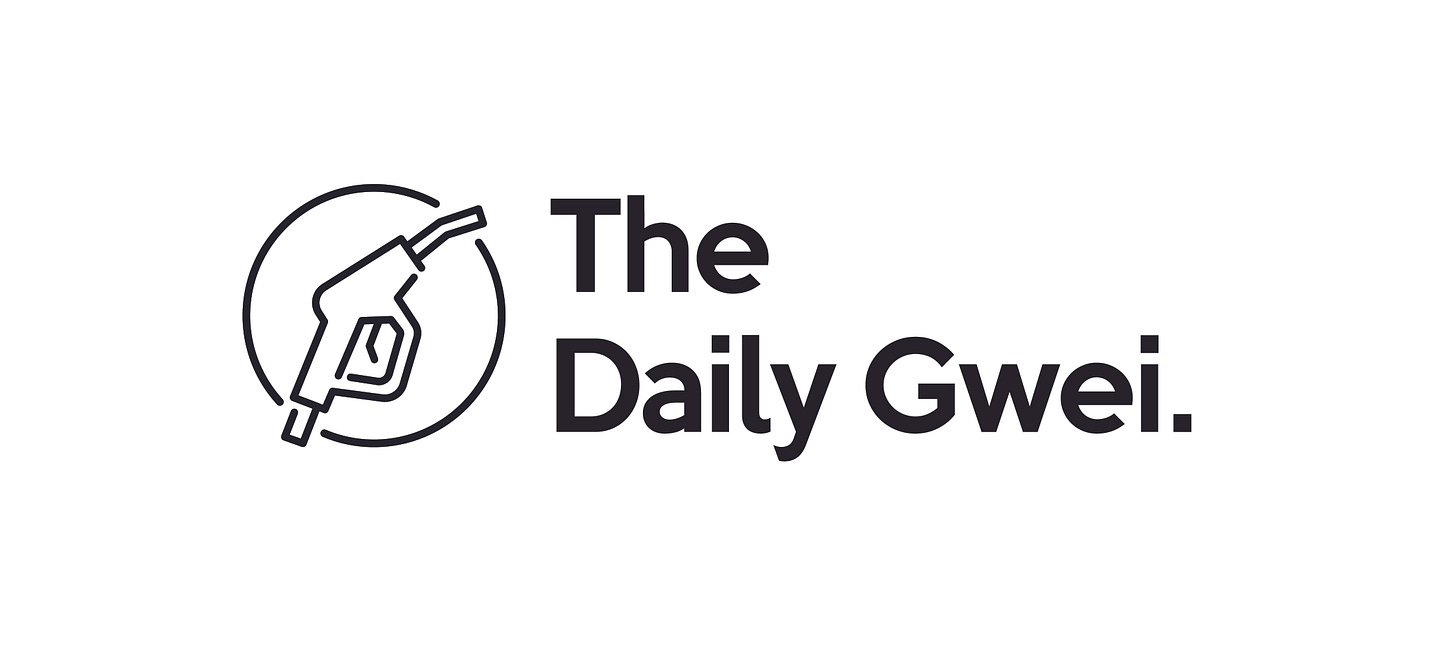Sustainable Scalability - The Daily Gwei #509
The holy war between the modular and app-chain designs is just heating up.
There is a bit of a holy war going on in the blockchain space right now over which way to scale - through a modular design or through an ‘app-chain’ design with optional ‘shared security’. Obviously Ethereum is pursuing a modular scaling approach where things like consensus and execution are seperated into “modules” or “layers” that all work together. On the other end of the spectrum we have something like Cosmos which is taking the app-chain approach believing that it’s better for a chain to be soverign rather than outsource its sovereignty.

This holy war goes beyond just the scalability aspects - it also has a lot to do with the economics of each approach. As pseudotheos outlines above, there is a big cost advantage to outsourcing the security of an execution layer (like a rollup does) rather than trying to spin up a new network of validators (like an app-chain does). The former is quite cheap to do and requires only that the rollup pay Ethereum layer 1 transaction fees (and there are many ways to optimize these costs) whereas the latter is much more costly and usually requires inflation of a projects native token to secure the network (which pushes the cost onto all token holders).
On top of the economic costs there are very real decentralization concerns that come into play. I mean, to get to Bitcoin and Ethereum’s level of decentralization is near impossible - nothing even comes remotely close - so why would a project try to do this instead of just settling to Ethereum? Not everything needs maximum decentralization of course, but if it’s cheaper to get it from Ethereum rather than spinning up an independent chain, then the choice is rather obvious to me.
Lastly, coordination and decentralized governance is also a huge burden that layer 1 blockchains/app-chains have to deal with. Ethereum’s off-chain decentralized governance process is far from perfect but it has been iterated on for many years now to get to what we have today (a workable system). To even get anything close to resembling Ethereum would take a very long time and there is no guarantee of success - so, again, why not just inherit the work that Ethereum has already done by deploying a rollup?
I think there are some niche cases where building a layer 1 blockchain (or soverign app chain) may make sense - such as an enterprise use-case or something like a game that doesn’t require high security, but in pretty much all other cases it just makes sense to spin up a rollup. Yes, layer 2 technology is generally still early, and yes it’s going to take some time to get this to where we all want it to be, but long-term I think the modular approach is the only solution to sustainably scale a decentralized blockchain to the world.
Have a great day everyone,
Anthony Sassano
Enjoyed today’s piece? I send out a fresh one every week day - be sure to subscribe to receive it in your inbox!
Join the Daily Gwei Ecosystem
All information presented above is for educational purposes only and should not be taken as investment advice.





if having app specific chains with their token for gas makes it go up, projects will prefer it over maximizing decentralization, pretty rational capitalism and as long as less decentralization doesn't impact underlying product its fine
Hi from Dominican Republic Guys.✌🏼🇩🇴…🙈